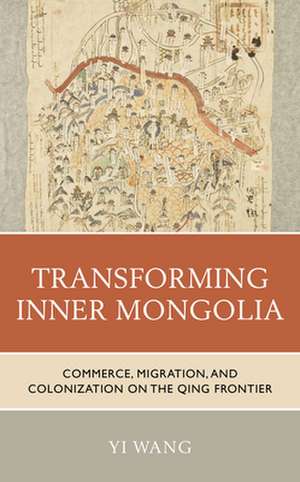Transforming the Borderland
Autor Yi Wangen Limba Engleză Hardback – 20 sep 2021
Preț: 702.48 lei
Preț vechi: 962.30 lei
-27% Nou
Puncte Express: 1054
Preț estimativ în valută:
134.42€ • 140.63$ • 111.66£
134.42€ • 140.63$ • 111.66£
Carte tipărită la comandă
Livrare economică 02-16 aprilie
Preluare comenzi: 021 569.72.76
Specificații
ISBN-13: 9781538146071
ISBN-10: 153814607X
Pagini: 336
Dimensiuni: 152 x 229 x 28 mm
Greutate: 0.64 kg
Editura: Rowman & Littlefield
ISBN-10: 153814607X
Pagini: 336
Dimensiuni: 152 x 229 x 28 mm
Greutate: 0.64 kg
Editura: Rowman & Littlefield
Notă biografică
Yi Wang is associate professor of history at Binghamton University.
Descriere
This book analyzes the social, economic, and political impact of Han Chinese migration into the borderlands that became Inner Mongolia during the Qing period. Linking local history to global movements, Yi Wang traces Inner Mongolia's integration into what would become the nation-state of China and from there into a global capitalist economy.
